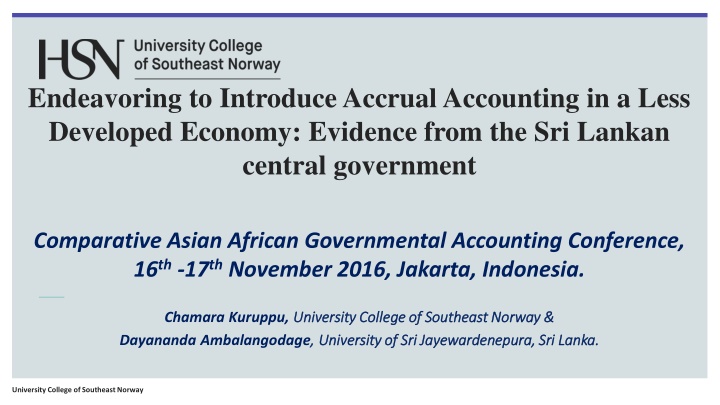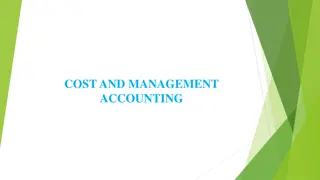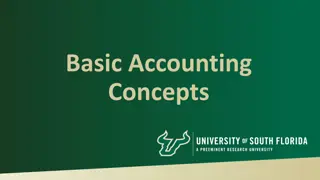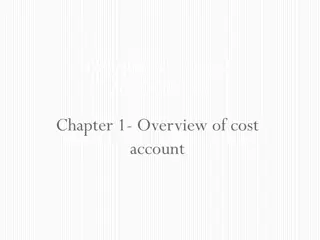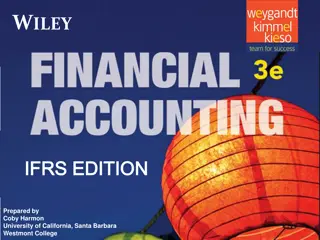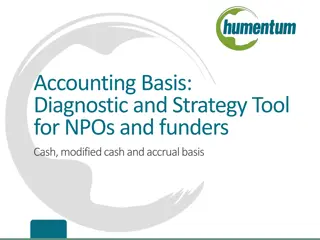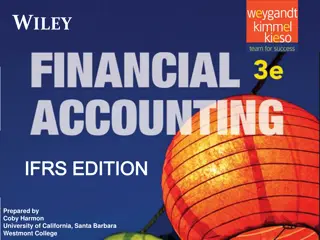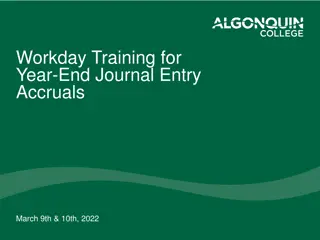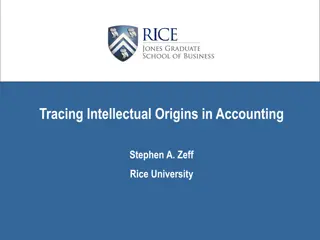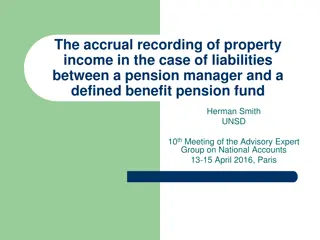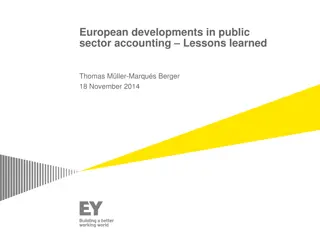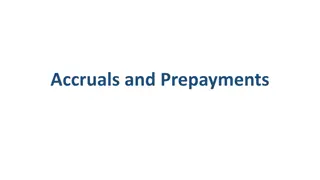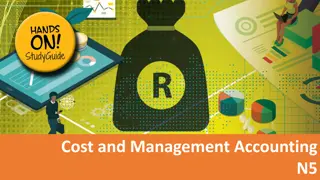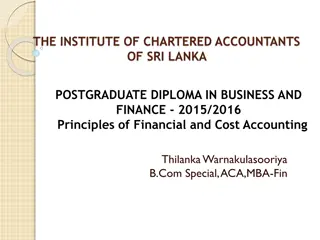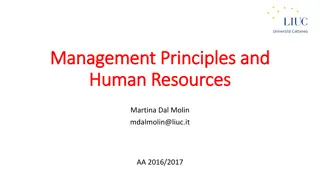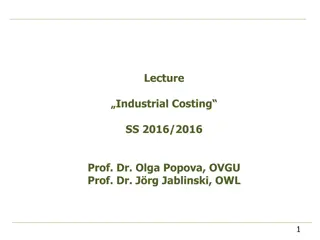Introducing Accrual Accounting in a Developing Economy
This study investigates the introduction of accrual accounting in Sri Lanka's central government, exploring motivations, challenges, and institutional perspectives. The research emphasizes overcoming skepticism and enhancing accounting reforms in less developed economies through field visits and interviews with administrators. Insights on NPM reforms, isomorphism, and survival rates are analyzed to shed light on the adoption of accrual accounting practices.
Download Presentation

Please find below an Image/Link to download the presentation.
The content on the website is provided AS IS for your information and personal use only. It may not be sold, licensed, or shared on other websites without obtaining consent from the author.If you encounter any issues during the download, it is possible that the publisher has removed the file from their server.
You are allowed to download the files provided on this website for personal or commercial use, subject to the condition that they are used lawfully. All files are the property of their respective owners.
The content on the website is provided AS IS for your information and personal use only. It may not be sold, licensed, or shared on other websites without obtaining consent from the author.
E N D
Presentation Transcript
Endeavoring to Introduce Accrual Accounting in a Less Developed Economy: Evidence from the Sri Lankan central government Comparative Asian African Governmental Accounting Conference, 16th-17thNovember 2016, Jakarta, Indonesia. Chamara Kuruppu, University College of Southeast Norway & University College of Southeast Norway & Dayananda Ambalangodage, University of Sri Jayewardenepura , University of Sri Jayewardenepura, Sri Lanka. , Sri Lanka. University College of Southeast Norway
Introduction NPM reforms to overcome the inefficiency (Hood 1989; 1991; 1995). Accounting as a main element of reforms package (Hood, 1995; Lapsley et al., 2009). Entails an indefinite list of accounting techniques (Guthrie et al., 1999). PPB in the 1970s (Dean 1986) and ZBB & performance budgeting in the 2000s (Adhikari et al., 2013) in Sri Lanka. Endeavor to introduce accrual accounting from the early 2000s. University College of Southeast Norway
Scepticism concerning the introduction of accrual accounting (Guthrie, 1998; Ellwood and Newberry, 2007). Call for studying accounting reforms in LDEs (Christensen and Parker 2010). Explore the endeavor to introduce accrual accounting by the bureaucracy. How was the administration motivated to present CFSs as per the cash basis IPSAS and to express its willingness to adopt accrual accounting? And to shed light on the issues that mitigate the introduction of accrual accounting. University College of Southeast Norway
Five field visits in June 2006, May 2007, January 2008, June 2009 & July 2014. Collected documents and informal discussion with administrators. Attended the ceremony to introduce SLPSAS in June 2009. Interviewed 22 administrators and a consultant to the MoFP. University College of Southeast Norway
New Institutional Perspective Should legitimate actions to obtain resources (Meyer and Rowan, 1977). Make changes to meet environmental pressures (DiMaggio and Powel, 1983). Adopt structures, procedures and practices admired by others (DiMaggio and Powel, 1983; Hopper and Major, 2007). Enable to gain a high level of commitment (Goddard et al, 2016). University College of Southeast Norway
Increase the rate of survival (Meyer and Rowan, 1977). Three types of isomorphism by DiMaggio and Powell (1983). Mimetic isomorphism: uncertainty & consultants. Normative isomorphism: university & professional education. Coercive isomorphism: expectation in society & resource dependency. University College of Southeast Norway
Empirical Findings Oversight committees for accrual accounting in the early 1980s. Auditor General & accountants for accrual accounting. - IPFDA from in March 1980. The IMF advisor criticized cash-based accounting in 1997. Secretary to the IPFDA criticized cash-based accounting in 1997. ADB & UN advisors showed the limitations of cash-based accounting in University College of Southeast Norway 1998.
A member of SLAS & IPFDA as the DG of SAD from January 2001. Financial statements for the year 2002 as per the cash basis IPSAS. Positive appraisal by the WB about this initiative. Funds from the ADB & WB to attend accounting seminars and workshops. A chartered accountant as the DG in 2005. University College of Southeast Norway
Funds from the ADB to identify assets. ICASL s membership at stake. A committee consisting of administrators and accountants to develop SLPSAS. Four standards in 2009 and Six more standards in 2012. No new standards presented in this year. University College of Southeast Norway
Administrators without accounting background as the DG of SAD from October 2006. No clear documentation of government s assets. Some administrators do not support the adoption of accrual accounting. Politicians do not argue for accrual accounting. University College of Southeast Norway
Discussion and conclusions Some of the administrators and politicians argued for changing the accounting system in the early 1980s. Both IPFDA & ICASL attempt to introduce accrual accounting. Consultants & well-trained administrators criticized cash-based accounting. The inauguration of IPFDA increases the discussion for accrual University College of Southeast Norway accounting.
No coercive pressure from the international institution to introduce accrual accounting. Assets valuation, change of reforms leadership and lack of political leadership delay the adoption of accrual accounting. University College of Southeast Norway
Thank You! University College of Southeast Norway
